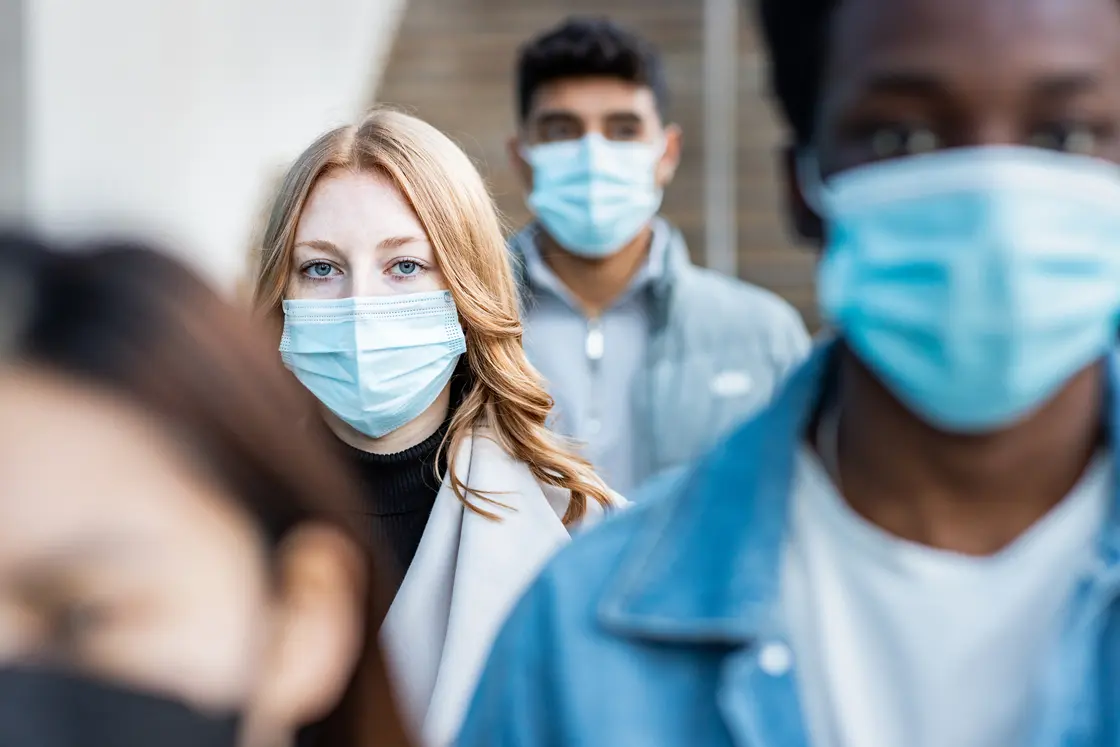The fall season is often associated with the resurgence of the flu, and this year is no different for Covid-19. As temperatures drop, cases of the virus are on the rise in the Northern Hemisphere, with new variants emerging.

COVID-19 Returns in Autumn
What is the current status of Covid-19?
The Covid-19 pandemic has had a devastating impact, killing nearly 7 million people worldwide. However, thanks to vaccines, natural immunity, and the development of better treatments, the virus is now more manageable.
“If I had to choose between the flu and Covid, I would choose Covid, because each individual case of the flu is more dangerous,” Dr. Ashish Jha, a physician and former White House advisor, told Agence France-Presse. However, while Covid is rarely fatal today, “it also appears to have a higher rate of long-term complications.”
Covid-19 is also more contagious. While it is not seasonal like the flu, it has peaked between December and January in the past three winter seasons in the United States, just before the flu.
“Covid is still clearly more dangerous than traditional colds,” said infectious disease specialist Dr. Amesh Adalja.
Should I get a booster shot?
Pfizer, Moderna, and Novavax have all developed updated vaccines, which are new versions that are better adapted to the current circulating variants.
Getting vaccinated was essential at the height of the pandemic, and there is general agreement that booster shots are beneficial for the most vulnerable populations. However, there is no consensus on whether to re-vaccinate young and healthy people.
Studies have shown that virtually everyone in Western countries has been infected with Covid. This infection, in addition to vaccines, has helped train the immune system to defend itself.
“Recommending that everyone be vaccinated without discrimination could damage trust in authorities,” said Dr. Monica Gandhi, a professor of medicine. Pfizer and Moderna’s mRNA vaccines carry a risk of myocarditis, especially in young people.
Therefore, the United Kingdom, France, and Germany recommend an annual booster shot for only at-risk groups.
Other experts believe that the risks associated with the vaccine are small. “Even people who have a low risk of developing a serious case of Covid benefit from boosters,” said Dr. Ziad Alai, an epidemiologist. The United States recommends a booster shot for all adults this fall.
What about masks?
The issue of mask-wearing has become sometimes highly sensitive, especially in the United States.
According to an analysis by the Cochrane Collaboration, encouraging mask-wearing had no clear impact on slowing the spread of the virus.
However, researchers know, thanks to laboratory tests, that a good-quality mask (N95 in the United States, FFP2 in France, etc.) provides protection. Therefore, people can choose to wear it indoors, although this is not generally necessary, according to Dr. Gandhi, given the protection provided by vaccines.

Do I still need to get tested for Covid?
Experts agree that people at risk, such as the elderly, or those with underlying health conditions such as cancer, obesity, or diabetes, should continue to test themselves if they experience symptoms. This will enable them to benefit from antiviral drugs, which should be taken early in the infection to prevent their condition from worsening.
The main treatment is Paxlovid, developed by Pfizer.
Some countries, such as the United Kingdom, believe that it is enough for people at risk to be tested. They provide free tests for them.
The UK health authorities say that “most people no longer need to be tested,” and “to avoid spreading the infection, stay home if you feel unwell.”
What about long-term Covid?
What is hindering research into long-term Covid (which has symptoms that last for several months) is the lack of a definition that everyone agrees on, according to Dr. Adalja. It is estimated to affect between 4 and 7% of the population, or 65 million people worldwide, according to Dr. Alai.
“Unfortunately, we have not made any progress in treating long-term Covid. It must be a priority around the world,” he says.
Vaccination appears to reduce the risk of developing long-term Covid, which is often associated with the severity of the infection.
The US government has funded several clinical trials to better understand this disease. One of them found that one diabetes drug helped to reduce symptoms by 40%. More results are expected to be published in the coming months.

